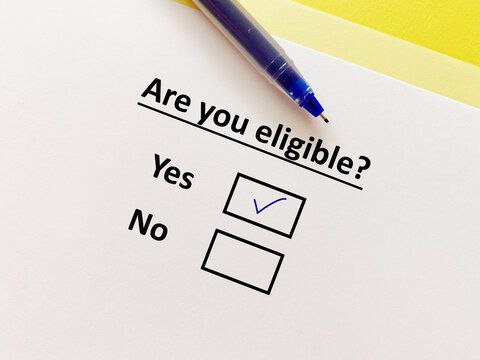Introduction
Looking for a career in auditing and want to enhance your skills and knowledge in the field? A CIA course is then the right choice to make.
The Certified Internal Auditor (CIA) course is designed for individuals who are looking to advance their careers in auditing and demonstrate a high level of competency in the field. The course is offered by the Institute of Internal Auditors (IIA) and is widely recognised as the most globally recognised credential in the field of internal audit.
The CIA program provides candidates with professional knowledge in the field of Internal Audit. Unlike other programs like MBA, Executive MBA, BE/BTech, or national-level exams, the CIA certification program has no specific entrance exam.
Career Scope in Certified Internal Auditor

A career as a Certified Internal Auditor provides opportunities across different industries and sectors. There is an increasing need for skilled Internal Auditors due to the growing emphasis on corporate governance and risk management. Besides, there has been a growing demand for the CIA as organisations often rely on the CIA for regulatory compliance, risk assessment, and decision-making insights.
Role & Responsibilities of Certified Internal Auditor
Certified Internal Auditors (CIAs) are responsible for conducting independent and objective assessments of an organisation’s operations. Their main task is to assess the efficiency of risk management, control, and governance processes in an organisation.
The responsibilities of a CIA can differ based on the employing organisation. Their typical role is to evaluate and enhance the organisation’s internal controls.
This is accomplished through internal audits, financial statement reviews, and report issuance. The objective is to ensure the company’s operations are efficient and compliant with all laws and regulations.
Some key responsibilities of CIAs include:
- Conducting internal audits,
- Analysing financial documents and reports,
- Ensuring adherence to relevant laws, regulations, policies, and industry standards,
- Evaluating the efficiency of risk management systems,
- Performing operational audits,
- Identifying areas of risk,
- Creating audit reports that effectively communicate findings, recommendations, and action plans to management, and
- CIAs can also assist organisations in developing systems to mitigate risk and prevent fraud.
Employment Scope Career Options for Certified Internal Auditor
Certified Internal Auditors have a wide range of job opportunities in various industries like finance, healthcare, banking, and more. They can pursue various roles such as Internal Auditor, Auditing Manager, or Internal Audit Director.
Some of the top companies that recruit CIA are Tata Motors, HCL Technologies, JP Morgan Chase & Co, Deloitte, PricewaterhouseCoopers (PwC), Ernst & Young (EY), and KPMG. CIAs can also work as consultants or start their own auditing firms.
With the increasing focus on corporate governance and risk management, the demand for CIAs is expected to grow in the coming years.
Career scope for Certified Internal Auditor in the Government sector
Certified Internal Auditors (CIAs) also have promising career opportunities in the government sector. Government agencies often employ internal auditors to maintain transparency, accountability, and efficiency in their operations.
CIAs in the government sector can be employed across various departments including finance, defence, healthcare, and others. They may also be employed by regulatory authorities such as the Securities and Exchange Board of India (SEBI), Reserve Bank of India (RBI), Federal Reserve, Indian Revenue Service (IRS), etc.
Salary Range

The salary range for Certified Internal Auditors can vary depending on factors such as designation, experience, location, and industry.
The average salary for CIA certification holders in India varies from 4 to 20 lacs per annum, based on factors such as employer and years of experience. Fresher CIA can get a minimum package of 5 to 6 lacs per annum. The package can increase with experience and based on your performance.
Job positions such as Chief Internal Auditor, Internal Auditing Manager, and Senior Manager Auditor are among those that offer the highest salary.
How to Become a Certified Internal Auditor?
To obtain certification status, candidates must successfully clear the Certified Internal Auditor exam divided into three parts.
For prospective CIA aspirants, seven crucial steps are involved in becoming a certified internal auditor. These seven steps and associated certified internal auditor course details include:
Meet the Eligibility Criteria: To become a Certified Internal Auditor, candidates must meet the IIA’s eligibility criteria. These requirements include having a bachelor’s degree from an accredited institution and relevant work experience in internal auditing or a related field. Candidates can also substitute some of this work experience with relevant education.
Create a CCMS Profile: Prospective applicants are required to create a new profile in the Certification Candidate Management System (CCMS). Creating a CCMS profile is free of charge. Candidates should make sure that all information provided is current and accurate when setting up their profile.
Apply for the CIA Course: After creating the profile, the next step is to apply for the CIA program. Candidates seeking to apply for the CIA certification program should choose the CIA certification option and then click on the ‘complete a form’ link. Candidates must pay the online application fee for CIA certification to submit the application form.
Upload the Required Documents: Candidates must upload the necessary documentation online to meet the four requirements for Certified Internal Auditor eligibility. The required documents include education records, identification, character references, and proof of work experience. Documents should be submitted in English or with an official English translation.
Registration: Candidates are required to access their CCMS profile and complete the exam registration form to register for any of the CIA certification exams. Upon registration, candidates must schedule and sit for the registration exam within 180 days of registering. Failure to appear for the examination will result in forfeiting exam fees, necessitating re-registration and payment.
Schedule Your Exam: After registration, candidates need to schedule their exam. IIA has partnered with Pearson VUE to administer CIA certification exams, allowing candidates to schedule their exam at their nearest Pearson VUE test center based on availability. This can be done either online or over the phone.
Appear for the Exam: The last step for CIA certification is to take the exams. Candidates must arrive at the testing venue at least 30 minutes before the exam time. Late arrivals may be denied entry. Also, the only permissible item in the testing room is a non-electric language translation dictionary.
Candidates have 4 years to achieve CIA certification status upon registration. This involves completing the three certified internal auditor exams and acquiring the necessary professional work experience, along with documenting it. Failure to obtain certification within the 4-year time limit will result in forfeiture of all CIA course fees and exam parts.
Eligibility Criteria

Specific criteria must be met before applying for the CIA course.
Applicants must have a bachelor’s degree or its equivalent from an accredited college or university. Some international professional designations, such as Chartered Accountants, may be considered equivalent. Full-time university students who are in their final year are also eligible to take the CIA exam.
In addition to the educational qualification, work experience criteria also need to be fulfilled.
Educational level | Work Experience required |
Bachelor’s degree or equivalent | 2 years of internal audit experience or equivalent |
Master’s degree or equivalent | 1 year of internal audit experience or equivalent |
Associate degree or equivalent | 5 years of internal audit experience or equivalent |
In addition, a valid government-issued identification like a passport or national ID is required.
CIA Course Syllabus

The CIA course is structured into three parts, each emphasising various aspects of internal auditing. The syllabus for each part differs from the other.
Here is a breakdown of the subjects and syllabus covered in each part:
Part | Syllabus |
Part I | • Foundations of Internal Auditing • Fraud Risks • Proficiency and Due Professional Care • Governance, Risk Management and Control • Independence and Objectivity • Quality Assurance and Improvement Program |
Part II | • Managing the Internal Audit Activity • Planning the Engagement • Performing the Engagement • Communicating Engagement Results and Monitoring Progress |
Part III | • Financial Management • Business Acumen • Information Security • Information Technology |
Institute of Internal Auditors (IIA) offers a range of study materials to help candidates prepare effectively for certification exams for certified internal auditors. The materials include study guides, sample questions and answers, mock tests, and exam review courses. These documents can be accessed through the candidate’s official CCMS account.
Additionally, IIA has also published a list of reference books that cover the entire Certified Internal Auditor study material, including authors and publishers.
Skills Required for CIA
Individuals seeking a career as a Certified Internal Auditor must have specific skills in addition to completing the required education and passing the CIA exam. Some key skills required for CIAs include strong analytical skills, critical thinking, ethics and integrity, proficiency in risk assessment, knowledge of various audit methodologies, attention to detail, good communication skills, team building, time management, and an excellent understanding of internal control frameworks.
CIA Exam Duration and Pattern
The duration of CIA certification is determined by the amount of time dedicated to studying. On average, it may take 7 to 8 months to complete all three parts of the CIA Exam.
The CIA exam consists of three parts. Successful completion of all three parts of the Certified Internal Auditor exam is required to obtain certification.
Exam Part | Number of questions | Time given |
Essentials of Internal Auditing | 125 questions | 150 minutes |
Practice of Internal Auditing | 100 questions | 120 minutes |
Business Knowledge for Internal Auditing | 100 questions | 120 minutes |
The CIA certification exams are administered globally at Prometric Centres. Scores are measured on a scale of 250 to 750 points. Candidates must achieve a minimum of 600 points to pass the CIA exams successfully.
Exam results are declared 24 to 48 hours after the exam is completed, and candidates will receive email notifications about result availability.
Although the CIA certification exams are scored on a 250 to 750-point scale, with a passing score of 600 points, the final results do not include a numerical score. The candidate’s results only show a “pass” status. Candidates who do not pass will receive a numeric score and feedback on key subjects to help them improve.
How to Maintain CIA Certification?
Candidates are required to participate in continuing professional education (CPE) to maintain their CIA certification status. Candidates receive 80 CPE hours upon initial certification, allocated as 40 hours per year for two years. The CIA certification is valid for 2 years, and holders must complete 20 to 40 CPE hours annually to maintain their certification status.
In addition, candidates are required to complete a minimum of two hours of ethics training each year. The course content needs to adhere to the IIA’s Professional Certification Board standards.
The IIA enforces a reinstatement fee for Certified Auditors who do not report their CPE requirements after 12 months.
The fee payment is waived for candidates living in North America or those with current IIA membership during CPE documentation.
Fees for Certified Internal Auditor Course

CIA course costs around 1.5 lacs in India. The fees for the course cover the study materials, exam application fee, and other related expenses. Candidates need to budget accordingly to ensure a smooth certification process.
Conclusion
In conclusion, the Certified Internal Auditor (CIA) certification program provides a specialised career path for individuals interested in internal audit. CIAs play a crucial role in organisations by ensuring efficiency and compliance, making them highly sought after in today’s business world.


